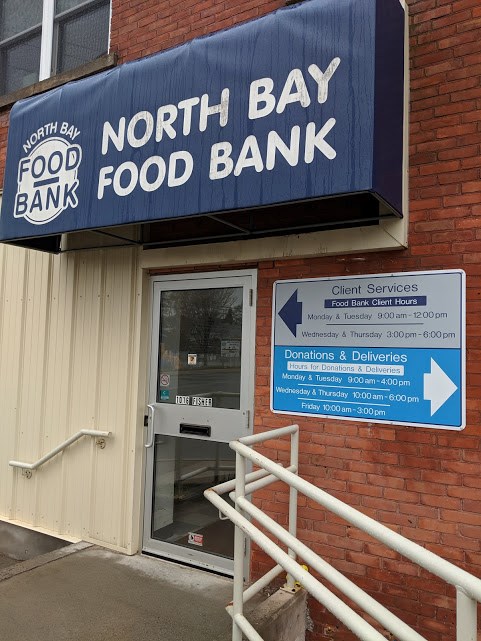The pandemic has made it harder for some members of the community to put food on the table.
Provincially, there has been a 23.5 per cent increase in food bank visits since 2019, with children in Ontario accounting for 32 per cent of food bank users and seniors representing 9.4 per cent. This is the highest it’s been since the 2008 recession according to a news release from No Frills.
To help meet this increased need, No Frills has launched its annual Holiday Food Drive between December 2 to 24.
"North Bay residents are urged to make a food or monetary donation to North Bay Food Bank while they grocery shop," says the release. "As the country continues to emerge from the pandemic, for many, this holiday season will mean finally reuniting with friends and family to celebrate together over seasonal feasts. Unfortunately, the celebration is not the case for all. For Canadians living with food insecurity, the increased financial burden of the holidays makes it an even more stressful time of year to put food on the table."
According to Food Banks Canada, since the start of the pandemic, food bank visits have increased by more than 23 per cent in Ontario. There have been 1,303,997 visits to Canadian food banks in 2021.
From December 2 to December 24, all No Frills stores will be collecting non-perishable food items as well as cash donations, with all donations going to the North Bay Food Bank.
“The COVID-19 pandemic has been devastating for the most vulnerable Canadians over the last 19 months, “says David Armour, Interim CEO of Food Banks Canada. “With food insecurity a top concern for millions of Canadians, the holiday season is a critical time for those who are more fortunate to help their fellow community members in need.”
Donation bins for food items can be found in-store and money is accepted at the checkout.
When it comes to preferred donations, the most needed items are the same ones that you fill your cart with each week including:
- pasta and pasta sauces,
- canned meats and fish,
- canned vegetables and fruit,
- whole grain cereals,
- baby foods and formula,
- bathroom tissue,
- diapers and
- personal hygiene products.
A new Ipsos poll conducted on behalf of CanadaHelps, the country's largest platform for donating and fundraising online, confirms that 32 per cent of Canadians have more discretionary income amid the pandemic.
Data from RBC suggests that Canadians saved a record amount in 2020. Of those with extra cash in hand, only 17 per cent have donated some of the excess funds to charity. The poll also looked at overall giving and revealed that only 12 per cent of Canadians increased their donations amid the pandemic, while nearly 18 per cent reduced how much they gave to charities.
The remainder of respondents falls into two groups: 25 per cent that doesn't give any money to charity and 45 per cent that have not changed how much they give to charity at a time when 42 per cent of charities are not able to meet the increased need for their services.
